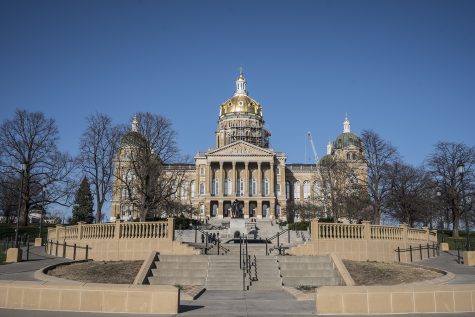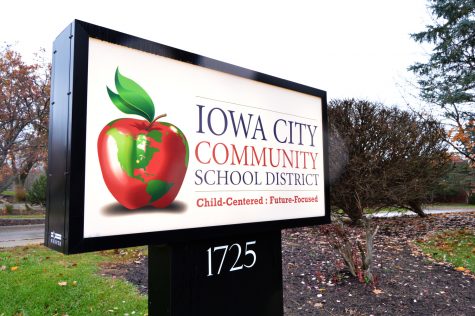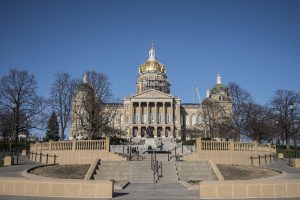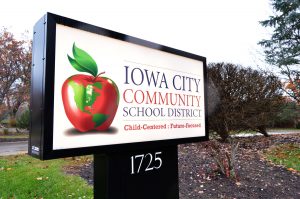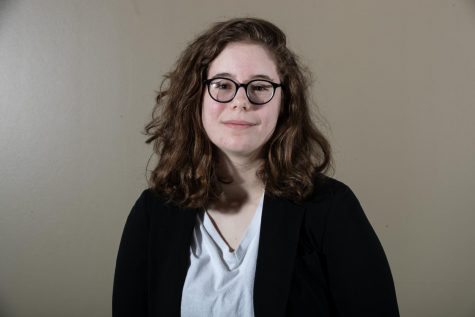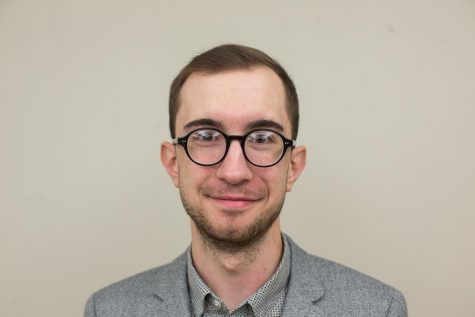Journalism professor publishes new book on Writers’ Workshop
UI journalism professor David Dowling’s new book, “A Delicate Aggression: Savagery and Survival in the Iowa Writers’ Workshop”, tells the tale of the eccentric Iowa Writers’ Workshop and its authors from the post-World War II era to the digital age.
April 8, 2019
While teaching at the Iowa Writers’ Workshop in the mid-1960s, Kurt Vonnegut collected a cult following of students. They called themselves the “Vonnegut people.”
Dedicated to Vonnegut’s absurdity, the circle of young writers prepared to defend his own obscurity — even going as far as to get into a pool-hall brawl to defend the reputation of their literary hero.
This is one of the tidbits featured in University of Iowa journalism Associate Professor David Dowling’s new book, A Delicate Aggression: Savagery and Survival in the Iowa Writers’ Workshop.
The book is a comprehensive history of the workshop, Dowling said in a New York Times interview. It covers writers who came into the Workshop after World War II up to the present and showcases their struggles, victories, and influence on the program.
Dowling’s interest in creative-writing programs was ignited while writing his previous book, Emerson’s Protégés. The 2014 book was about the literary circles in Massachusetts.
Dowling’s idea for the book solidified while researching at Prairie Lights. When visiting the bookstore, he couldn’t find any comprehensive history of the program.
Collaborating with members of the Journalism School was invaluable, Dowling said in an interview with The Daily Iowan.
“This was definitely not a solo venture,” he said.
Subin Paul, a Ph.D. student in journalism, served as the research assistant for Dowling’s book.
RELATED: In search of a whale story
“David approached me before the start of the semester,” Paul said. “He was looking for a research assistant who could go to the University of Iowa Special Collections and get materials that he wanted.”
Stephen Berry, a UI journalism professor emeritus, said Dowling’s research captivated him. Dowling said Berry was a great help in giving feedback on drafts and keeping Dowling on the right track.
I was honored that David gave me a chance to make a contribution to his work,” Berry said. “David simply asked me edit that draft as newspaper editor would, and I did that.”
Paul noted the parallel between the collaborative nature of the book and that of the Workshop.
“The exchange of ideas is what I see in common between our project and the Workshop,” Paul said.
The book is divided into three sections based on phases of the Workshop.
RELATED: Speaker, writer, mathematician: Multifaceted Mohutsiwa calls Iowa City home
“The structure of the book begins with a timeline that shows you all the major works of the authors from Flannery O’Connor all the way to Ayana Mathis,” Dowling said.
Dowling wanted to focus on the partnerships formed among authors.
“Oftentimes, [partnerships] would show up in history as faculty member and student, mentor and mentee,” Dowling said. “The book is about mentoring and marketing young literary talent.”
Paul said Dowling used profiles of writers to discuss the larger cultural context that the writers worked in.
“He called it ‘biographical journalism history,’ ” Paul said.
Dowling’s book inspired a side project about India’s first investigative journalist, T.G. Narayanan. Paul and Dowling worked together to gather research and write an article on Narayanan in the biographical journalism history style.
When asked whether he had braved any reviews, Dowling leaned back in his chair and let out a small chuckle.
“I am actually one of the few people who think that any review is welcome,” Dowling said. “When I hear authors complain about reviews or who have to suffer through reviews, I think the alternative is writing something that no one ever reviews.”




